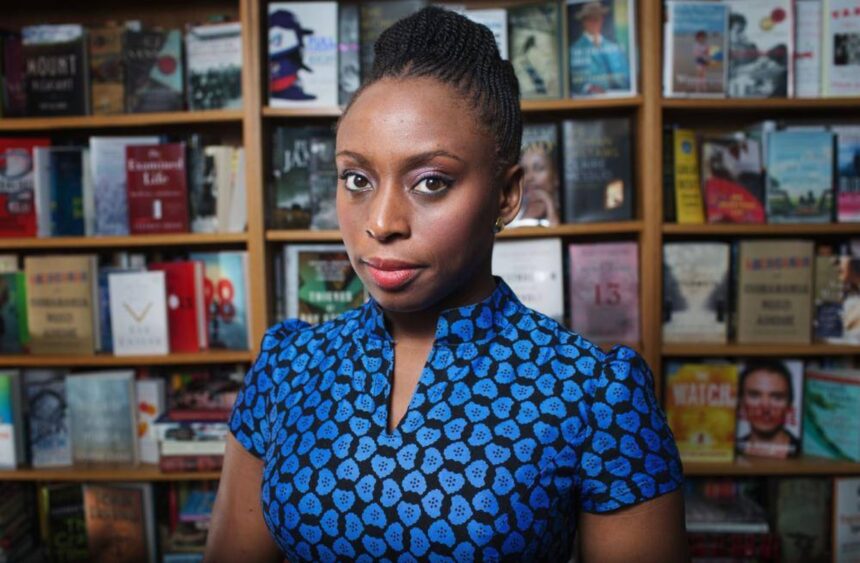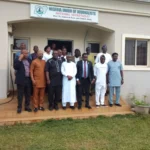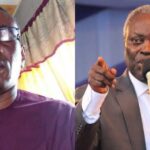It was an ordinary afternoon in Lagos when Chimamanda Ngozi Adichie’s words began an extraordinary journey. Alone in a modest study, surrounded by notebooks stacked precariously on the desk, she spoke into a camera for what would become one of the most far-reaching TED Talks of the twenty-first century.
- Nsukka: Formative Years in a Post-War Landscape
- Literary Emergence: Ethics, Memory, and Feminism
- The TED Talk That Sparked a Global Conversation
- The Beyoncé Connection: From Lecture to Anthem
- Cultural and Academic Resonance
- Global Reception and Controversy
- The Ethics of Amplification
- Global and Historical Legacy
- Concluding Insights: Words as Bridges
The room was quiet except for the soft hum of electricity and the distant chatter of the city beyond her window. She spoke of feminism, of societal expectations, of the invisible chains that often define women’s lives — yet there was no fanfare, no audience of thousands, no hint that this moment would ripple across continents.
Somewhere across the Atlantic, in a Los Angeles studio, a world-renowned musician listened. Beyoncé, already at the height of her career, was seeking a way to articulate her evolving artistic and social vision. She was confronting the same questions that had long haunted Chimamanda: How do you claim power in a world that constantly undermines it? How do you speak boldly about inequality while engaging millions who may resist uncomfortable truths?
What followed was a collision of art and intellect, culture and activism, words and music. The result was unexpected: a global anthem, both celebrated and debated, that married literature and pop culture in a way few could have predicted.
Yet this story did not spring fully formed from imagination. It was decades in the making, rooted in Nigeria’s complex history, in Chimamanda’s painstaking literary craft, and in the subtle yet relentless evolution of feminist thought across continents.
The suspense lies in tracing that journey: how a lecture delivered in a small, quiet room could travel — via digital platforms, international conferences, and social media — into the heart of global popular culture, and eventually, into Beyoncé’s music.
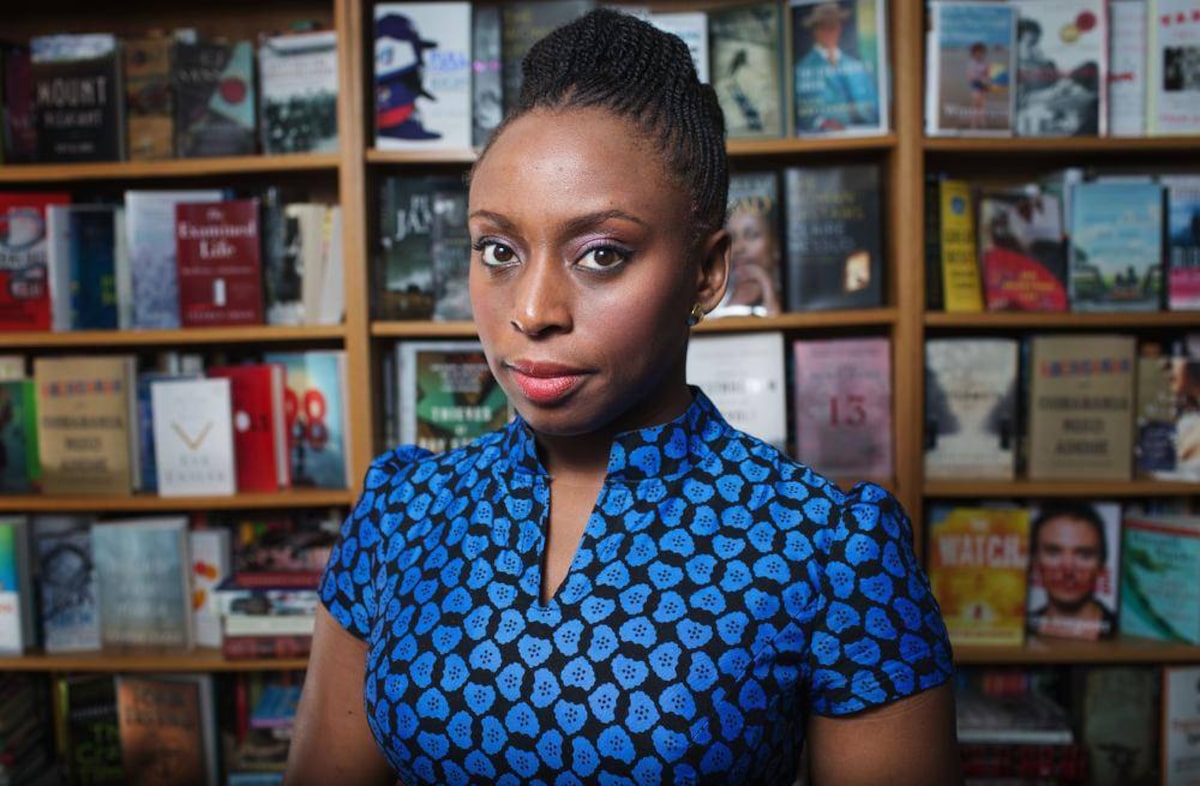
To grasp this transformation, one must follow the threads connecting childhood in post-war Nsukka, the development of a literary voice attuned to ethical responsibility, the rise of African feminism on the world stage, and the nuanced ways celebrity amplifies discourse.
Nsukka: Formative Years in a Post-War Landscape
Chimamanda Ngozi Adichie’s feminist consciousness was seeded in the streets and classrooms of Nsukka, a university town in southeastern Nigeria scarred by the Biafran War. Born in 1977, Chimamanda grew up in a household that valued intellect and discipline. Her father, James Adichie, a university professor of statistics, was meticulous and principled. Her mother, Grace Adichie, a registrar at the University of Nigeria, instilled in her children the value of education and independence.
Yet Nsukka itself was a town in transition, shaped by the echoes of war. Buildings bore subtle scars, and families carried trauma in quiet, measured ways. Chimamanda observed these gaps between memory and silence and began to understand that stories could preserve the truth the world often ignored.

She noticed how women, in particular, were constrained — expected to excel academically, yet socially discouraged from speaking publicly or asserting authority.
From early on, she found solace and power in writing. Her notebooks captured both the textures of everyday life and the underlying tensions: overheard conversations about politics, market scenes, and subtle gender hierarchies. Chimamanda learned to read the silences between words, to understand that what was left unsaid often revealed more than what was spoken. These formative insights would later crystallize into the ethical and feminist lens through which she would interpret the world.

Literary Emergence: Ethics, Memory, and Feminism
Chimamanda’s first novel, Purple Hibiscus (2003), and her second, Half of a Yellow Sun (2006), established her reputation not merely as a storyteller but as a moral chronicler. Her narratives blended personal experience, Nigerian socio-political reality, and historical truth. Purple Hibiscus examined domestic oppression, patriarchal authority, and the muted rebellion of women and children. Half of a Yellow Sun went further, exploring the human consequences of the Biafran War, giving voice to silenced histories while emphasizing personal agency.
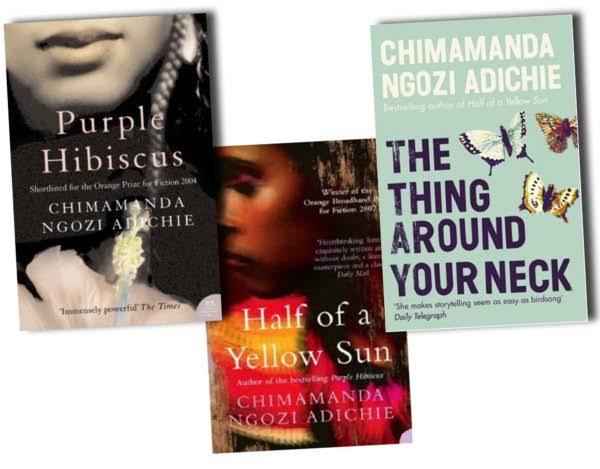
Through these works, Chimamanda’s engagement with gender, power, and societal constraints became increasingly explicit. She consistently explored the dynamics that silenced women: religious, cultural, and institutional pressures that limited autonomy and self-expression. Her writing revealed that feminism was not merely an abstract concept, but a practical necessity embedded in daily life, relationships, and community structures.
By the time she moved to the United States for higher education, Chimamanda had honed both her literary craft and her feminist perspective. Exposure to Western cultural norms, race, and gender dynamics amplified her observations, sharpening the universality of her insights. She realized that the struggles she observed in Nigeria were mirrored, in different forms, across the globe — and that literature could bridge these experiences.
The TED Talk That Sparked a Global Conversation
In December 2012, Chimamanda delivered a TEDxEuston talk titled We Should All Be Feminists. The presentation was concise — just over twenty minutes — yet its impact was seismic. She discussed feminism not as a polemic but as a lived reality, combining humor, anecdote, and ethical urgency. She challenged the audience to reconsider assumptions about gender roles, societal expectations, and cultural norms.
The talk was widely shared online, going viral through social media platforms. It resonated with millions precisely because it balanced specificity and universality: Chimamanda spoke from her Nigerian experience while illuminating patterns familiar to women worldwide. In it, she described the subtle ways women are conditioned to undervalue themselves, the invisibility of labor, and the cultural scripts that normalize inequality.
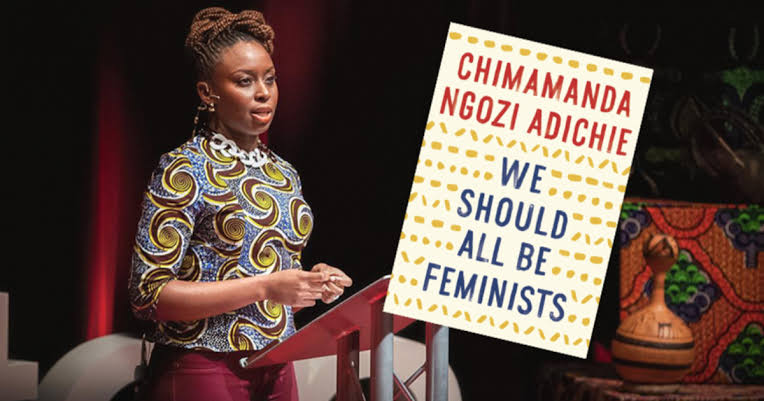
Soon, the talk was transcribed into an essay of the same name. We Should All Be Feminists became a cultural text, translated into multiple languages, and incorporated into classrooms and reading lists worldwide. Feminist scholars and activists praised its clarity, accessibility, and ethical grounding. It was in this form — both spoken and written — that Chimamanda’s words began their journey into the realm of popular culture.
The Beyoncé Connection: From Lecture to Anthem
The transformation from literary essay to global anthem began in 2013, when Beyoncé incorporated excerpts from Chimamanda’s TED Talk into her song Flawless, part of the critically acclaimed album Beyoncé. The process was subtle but powerful: the recording featured Chimamanda’s voice delivering the lines, “We teach girls to shrink themselves… to make themselves smaller,” embedding the text directly into the music.
This act was unprecedented. Here, a literary work had crossed boundaries into mainstream pop culture, carried not just by fans of Beyoncé but by audiences worldwide who may have had little prior engagement with feminist theory or African literature. The combination of Chimamanda’s precise, ethical language and Beyoncé’s cultural capital amplified the message exponentially.

The choice was significant. Beyoncé, as an African-American artist, engaged with Chimamanda’s African feminist perspective, creating a transatlantic dialogue about gender, power, and identity. The partnership demonstrated that literature need not remain confined to academic or literary spaces to influence cultural consciousness. It also highlighted Chimamanda’s unique ability to produce work that is simultaneously rigorous, ethical, and widely relatable.
Cultural and Academic Resonance
After the release of Flawless, Chimamanda’s words infiltrated spaces far beyond the literary and music spheres. Universities across the globe incorporated We Should All Be Feminists into curricula, prompting discussions about gender, identity, and power in classrooms from Lagos to London to New York. In these settings, students dissected the subtle mechanisms that constrain women’s voices, exploring how socialization, language, and institutional structures perpetuate inequality.
Educators noted that the Beyoncé connection made the text more accessible to younger audiences. Students who might have dismissed a traditional academic essay suddenly engaged with its ideas in a medium they already valued: music. Chimamanda’s feminist philosophy, once confined to literary and activist circles, now reached millions of listeners in a format that combined emotional resonance with intellectual rigor.
Beyond academia, the collaboration influenced global feminist movements. Social media campaigns, hashtags, and online forums amplified the discussion, drawing attention to issues such as wage gaps, reproductive rights, and the underrepresentation of women in leadership. The synergy between literature and popular culture demonstrated a new model for activism: one in which words, ethics, and celebrity converge to inspire tangible social engagement.
Global Reception and Controversy
The collaboration was not without debate. Some critics questioned whether the integration of academic-style commentary into a pop song diluted its message. Others argued that Beyoncé’s celebrity status overshadowed Chimamanda’s authorship. Yet, for many observers, the outcome was revolutionary: millions were exposed to feminist discourse who might never have encountered it otherwise.
Discussions erupted in classrooms, online forums, and mainstream media. Feminist activists debated the nuances of African versus Western feminism, cultural appropriation, and the power of celebrity amplification. Chimamanda herself navigated these discussions thoughtfully, emphasizing the importance of accessibility and impact over gatekeeping or ownership debates.
The result was undeniable: a literary-feminist intervention had reached a mass audience, sparking conversations about gender equity, self-perception, and cultural norms on a scale few imagined possible. Chimamanda’s voice, once confined to lecture halls and printed pages, now resonated in concert halls, radio airwaves, and streaming playlists across continents.
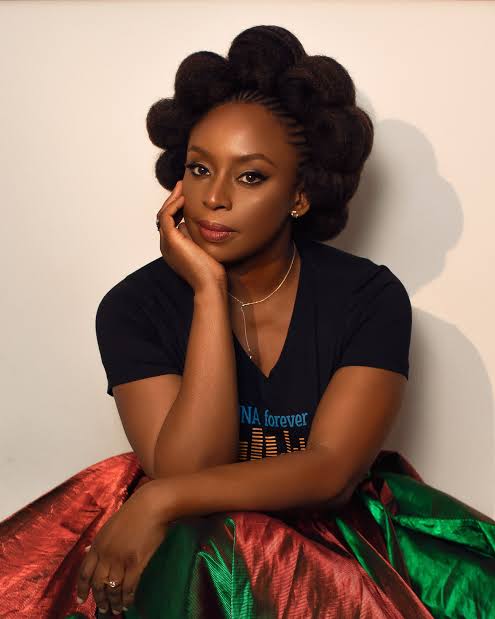
The Ethics of Amplification
This episode also highlights Chimamanda’s ethical approach to storytelling. She writes with a consciousness of consequence: every word carries moral weight, and every narrative has the potential to influence thought and behavior. By consenting to the use of her TED Talk in Flawless, she extended her ethical framework into the realm of popular culture.
Unlike many authors whose works are appropriated without consent, Chimamanda maintained oversight of how her words were used. The collaboration demonstrates a model in which literature, activism, and performance intersect responsibly. It also underscores her belief in accessibility: feminist ideas should not remain the purview of academic elites; they must reach all audiences, including those engaged primarily through entertainment.
Global and Historical Legacy
The combination of Chimamanda’s words and Beyoncé’s music represents a historical moment in the trajectory of feminist discourse. It illustrates how ideas rooted in local experience — a Nigerian writer’s reflections on gender — can achieve global resonance. It also demonstrates the power of cultural translation: literature, when mobilized through popular media, can challenge norms, inspire action, and shift consciousness.
The ripple effects are ongoing. Teachers, activists, and students continue to reference the collaboration; feminist conferences worldwide cite it as a case study in transnational dialogue; and millions of listeners encounter feminist theory in a format they already consume. Chimamanda’s voice, once limited to a small lecture hall in London or a classroom in Lagos, now echoes in stadiums, playlists, and conversations worldwide.
This global resonance is particularly significant because it highlights the ethical power of literature: the capacity not only to entertain but to educate, to mobilize, and to shape culture. Chimamanda’s words, now inseparable from Beyoncé’s music in the public imagination, exemplify how storytelling can travel across borders, mediums, and generations.
Concluding Insights: Words as Bridges
The journey from a TEDx stage to a global music stage exemplifies the unpredictable life of ideas. Chimamanda Ngozi Adichie’s words became Beyoncé’s feminist anthem not through chance, but through decades of careful observation, literary craft, ethical conviction, and cultural insight.
This story illustrates that words are bridges: connecting past to present, local to global, literature to music, and theory to lived experience. Chimamanda’s writing reminds us that storytelling is never neutral; it is an ethical act, a cultural intervention, and a historical witness.

Through this collaboration, audiences around the world have witnessed the transformative power of literature when paired with popular culture. Feminism, Nigerian history, and ethical storytelling converge in a single, resonant voice that refuses to be ignored. Chimamanda Ngozi Adichie has proven that words, once spoken, do not merely exist on the page — they travel, they transform, and they endure.
Her journey, from Nsukka to global stages, from notebooks to music streaming platforms, confirms a truth central to her work: stories matter. Words matter. And when used thoughtfully, ethically, and courageously, they have the power to change the world — one listener, one reader, one anthem at a time.

